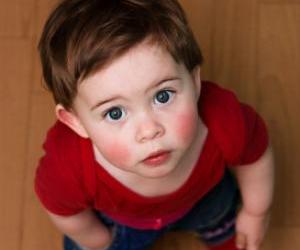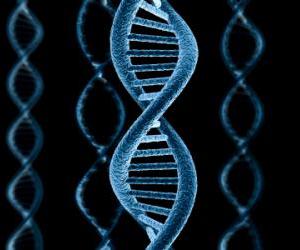Autism Testing Chicago IL
Chicago, IL
Early Intervention, Therapy Providers

ABA, Ideas For Finding Therapists, ABA, Therapy Services, Auditory Integration Therapy, Early Intervention, Floortime, Occupational Therapy, Play Therapy, Sensory Integration, Social Skills Training, Speech Therapy
Ages Supported
Preschool

Academic Assessments, Behavior Assessment, Early Intervention, Educational Advocacy, Educational Assessment, Floortime, Marriage & Family Counseling, Psychological Counseling, Research, Sensory Integration, Social Skills Training, Verbal Behavior
Ages Supported
Preschool,Kindergarten,1-5 Grade,6-8 Grade,9-10 Grade,11-12 Grade,Adult

ABA, Therapy Services, ABA/Discrete Trial, Behavior Assessment, Behavorial Intervention, Early Intervention, Verbal Behavior
Ages Supported
Preschool

Adult Support, Behavorial Intervention, Career Counseling, Disability Advocacy, Early Intervention, Floortime, Helpful Websites, Independent Living Centers, Job Coach, Nutritional Counseling, Nutritional Counseling, Nutritional Counseling, Occupational Therapy, Physical Therapy, Residential, Respite, Sensory Integration, Social Skills Training, Speech Therapy, Support Group Meetings, Verbal Behavior
Ages Supported
Preschool,Kindergarten,1-5 Grade,Adult

ABA, Therapy Services, ABA/Discrete Trial, Behavorial Intervention, Early Intervention, Military Families, Other, RDI, Therapy Providers, Training/Seminars, Verbal Behavior
Ages Supported
Preschool,Kindergarten,1-5 Grade,6-8 Grade,9-10 Grade,11-12 Grade,Adult

ABA/Discrete Trial, Behavorial Intervention, Early Intervention, Educational Advocacy, Play Therapy, Social Skills Training, Therapy Providers, Training/Seminars
Ages Supported
Preschool,Kindergarten,1-5 Grade

Early Intervention, Speech Therapy, Therapy Providers
Ages Supported
Preschool,Kindergarten,1-5 Grade

ABA/Discrete Trial, Behavorial Intervention, Early Intervention, Educational Advocacy, Play Therapy, Therapy Providers
Ages Supported
Preschool,Kindergarten,1-5 Grade

Disability Advocacy, Early Intervention, Floortime, Helpful Websites, Nutritional Counseling, Nutritional Counseling, Nutritional Counseling, Occupational Therapy, Physical Therapy, Sensory Integration, Speech Therapy, Support Group Meetings
Ages Supported
Preschool,Kindergarten,1-5 Grade


Autism and the Initial Diagnosis
Autism and the initial diagnosisChristy MarieAutism...Where do I begin...This started when my son was 2 years old. I remember that night I heard my son moan and scream. When I went to go see what happened. He was shaking on the bed. As I got closer he was having a seizure. At that point in time I was in a panic that I even forgot how to dial 911. This couldn't be happening not now.... my mouth literally dropped to the floor .. here comes another seizure. I have to say I snapped quickly out of and flew to my son and started to do what I learned in first aid. As time went on and weeks and weeks , doctor after doctor test after test. months after months... I wasn't sure where my son's mood swings were coming into play and why the complete melt downs. Guess what I found out You guessed it, we had to go see a specialist. Let me be the first to say Dr. Powers is an amazing doctor. Highly recommend him. They did an all day testing. Of course that day I took him he was sick with a bad cold, but he was a trooper. After 8 long hours. Dr. Powers sat me down looked me in my eyes and said Christy I have good news and bad news. The good news is we can help the bad news is your son has Autism and ADHD. That was it it felt like the roof caved in! I cried like a baby literally. My son saw that and came up to me and said mama I'm ok, I'm special and I just smiled and I knew then that I had work to do and I would become a mother who will be in the fight for Autism. I struggled with this then. I kept asking God why me? why? Accepting this was a struggle. I pray and prayed and then it came to me. Don't get me wrong.. there are days that are tough, but I know God gave me something I could handle!!! My son is 4 1/2 now and he amazes me! he has come such a long way. He remembers things from when he was 1, or 2 years old. Things that happened and people who he met. Dr. Powers said his visual aspects are amazing!!! Although he has Autism he is progressing! Thank y... |
Click here to read the rest of this article from Autism Support Network
Autism's First Child
Autism's first childJohn Donvan & Caren ZuckerAs new cases of autism have exploded in recent years—some form of the condition affects about one in 110 children today—efforts have multiplied to understand and accommodate the condition in childhood. But children with autism will become adults with autism, some 500,000 of them in this decade alone. What then? Meet Donald Gray Triplett, 77, of Forest, Mississippi. He was the first person ever diagnosed with autism. And his long, happy, surprising life may hold some answers. In 1951, a Hungarian-born psychologist, mind reader, and hypnotist named Franz Polgar was booked for a single night’s performance in a town called Forest, Mississippi, at the time a community of some 3,000 people and no hotel accommodations. Perhaps because of his social position—he went by Dr. Polgar, had appeared in Life magazine, and claimed (falsely) to have been Sigmund Freud’s “medical hypnotist”—Polgar was lodged at the home of one of Forest’s wealthiest and best-educated couples, who treated the esteemed mentalist as their personal guest. Polgar’s all-knowing, all-seeing act had been mesmerizing audiences in American towns large and small for several years. But that night it was his turn to be dazzled, when he met the couple’s older son, Donald, who was then 18. Oddly distant, uninterested in conversation, and awkward in his movements, Donald nevertheless possessed a few advanced faculties of his own, including a flawless ability to name musical notes as they were played on a piano and a genius for multiplying numbers in his head. Polgar tossed out “87 times 23,” and Donald, with his eyes closed and not a hint of hesitation, correctly answered “2,001.” Indeed, Donald was something of a local legend. Even people in neighboring towns had heard of the Forest teenager who’d calculated the number of bricks in the facade of the high school—the very building in which Polgar would be performing—merely by glancing at it. According to family lore, Polgar put on his show and then, after taking his final bows, approached his hosts with a proposal: that they let him bring Donald with him on the road, as part of his act. Donald’s parents were taken aback. “My mother,” recalls Donald’s brother, Oliver, “was not at all interested.” For one, things were finally going well for Donald, after a difficult start in life. “She explained to [Polgar] that he was in school, he had to keep going to classes,” Oliver says. He couldn’t simply drop everything for a run at show business, especially not when he had college in his sights. But there was also, whether they spoke this aloud to their guest or not, the sheer indignity of what Polgar was proposing. Donald’s being odd, his parents could not undo; his being made an oddity of, they could, and would, prevent. The offer was politely but firmly declined. What the all-knowing mentalist didn’t know, however, was that Donald, the boy who missed the chance to share his limeligh... |
Click here to read the rest of this article from Autism Support Network
Study: why more boys than girls have autism
Study: why more boys than girls have autismSheryl UbelackerResearchers are a step closer to understanding why autism spectrum disorder affects four times as many boys as girls. A study led by a team of Toronto scientists has discovered that males who carry specific genetic alterations on their X-chromosome have an elevated risk for developing autism spectrum disorder, or ASD. “The male gender bias in autism has intrigued us for years and now we have an indicator that starts to explain why this may be,” said co-principal investigator Stephen Scherer, director of the Centre for Applied Genomics at Toronto’s Hospital for Sick Children. The researchers, whose work is published this week in the journal Science Translational Medicine, found that about one per cent of boys with ASD had mutations related to the PTCHD1 gene on the X-chromosome. “Hearing that it’s in one per cent doesn’t get a lot of people excited,” conceded Scherer. “But it gets geneticists really excited because there’s a lot of genes involved (in ASD).” Boys inherit one X-chromosome from their mother and one Y-chromosome from their father, explained Scherer. “If a boy’s X-chromosome is missing the PTCHD1 gene or other nearby DNA sequences, they will be at high risk of developing ASD or intellectual disability. “Girls are different in that, even if they are missing one PTCHD1 gene, by nature they always carry a second X-chromosome, shielding them from ASD. While these women are protected, autism could appear in future generations of boys in their families.” Autism spectrum disorder affects an estimated one in every 165 children. The neurological disorder ranges in severity, but often includes problems communicating and interacting with others, unusual patterns of behaviour and intellectual disability. An estimated 190,000 Canadians have ASD, which is on the rise worldwide, says Autism Society Canada. The isolation of genetic alterations on the X-chromosome within a percentage of individuals with autism follows a number of recent genetic discoveries by Scherer and others that are moving science slowly but surely towards a better understanding of the causes of this baffling disorder. To conduct this study, researchers analyzed the gene sequences of 2,000 individuals with ASD, along with others with an intellectual disability, and compared the results to DNA sequencing from thousands of healthy control subjects. While the PTCHD1 mutation occurred in one per cent of males with ASD, it was not present in the DNA of thousands of healthy male controls — and sisters of males carrying the same mutation seemed unaffected by autism symptoms. “The deletions and other mutations seem to be related only to disease in the boys,” said co-principal researcher John Vincent. “They have sisters who have the same mutation but are healthy.” Vincent, head of the molecular neuropsychiatry and development lab at Toronto’s Centre for Addiction and Mental Health, isn’t surpris... |
Click here to read the rest of this article from Autism Support Network




